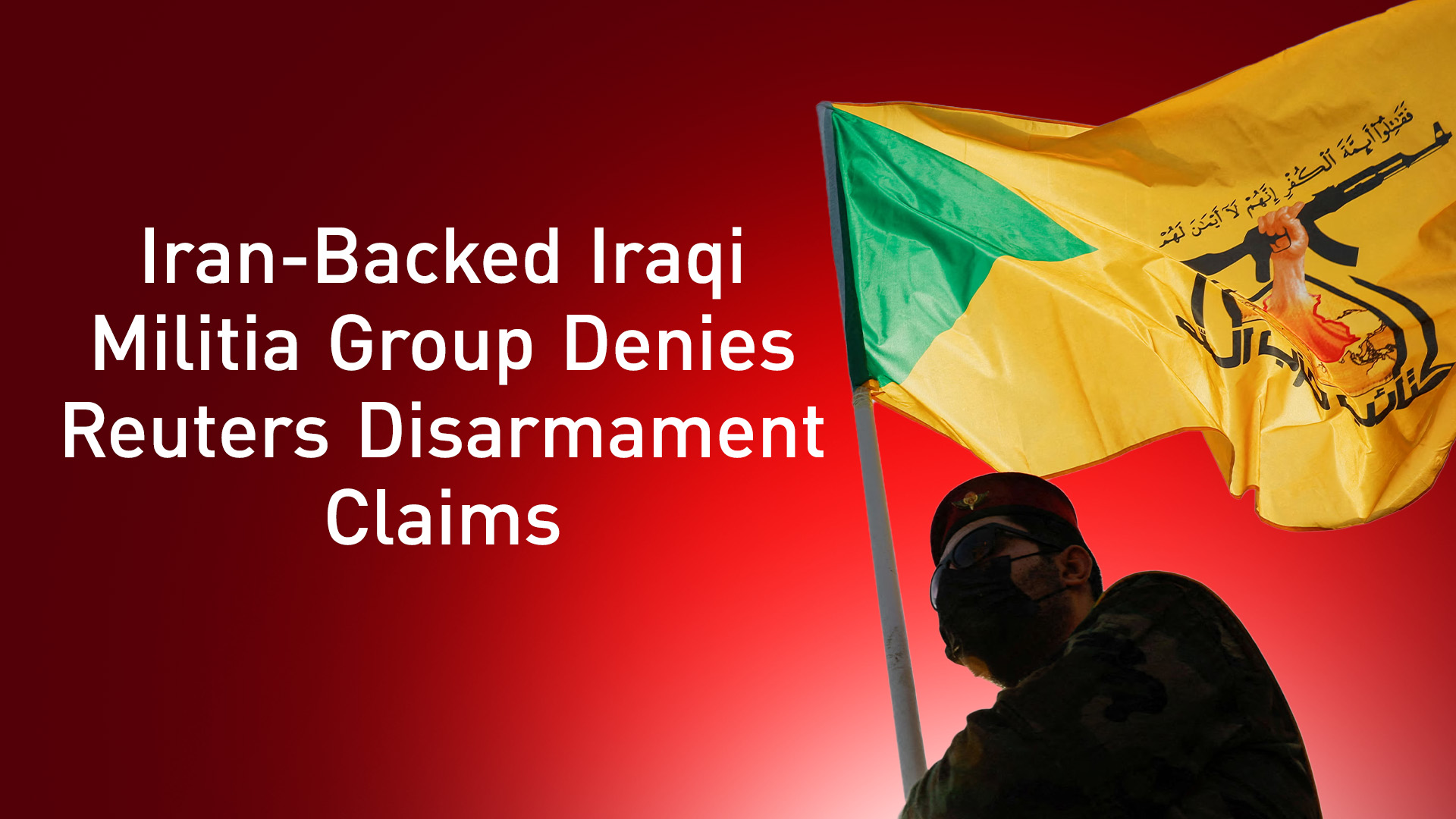Iran-Backed Iraqi Militia Group Denies Reuters Disarmament Claims
According to Reuters, several Iranian-backed militia groups, including Kataib Hezbollah, were ready to dismantle their arsenals and end operations in response to private U.S. warnings delivered to Baghdad.

By Kamaran Aziz
ERBIL (Kurdistan24) – Iraqi paramilitary group Kataib Hezbollah on Tuesday rejected claims made in a recent Reuters report that suggested it was prepared to disband its forces due to fear of potential U.S. military strikes under President Donald Trump's administration.
The Reuters article, citing anonymous Iraqi officials and alleged senior commanders, claimed that several Iranian-backed militia groups, including Kataib Hezbollah, were ready to dismantle their arsenals and end operations in response to private U.S. warnings delivered to Baghdad. The report portrayed these developments as a reaction to intensified U.S. pressure and fears of renewed airstrikes targeting militia strongholds across Iraq.
According to the report by Reuters, four of Iraq’s most prominent Iran-backed Shia militias—Kataib Hezbollah, Nujabaa, Kataib Sayyed al-Shuhada, and Ansarullah al-Awfiyaa—have been engaged in advanced discussions with Prime Minister Mohammed Shia al-Sudani's government over the prospect of disarmament and potential reintegration into Iraq’s national security apparatus. The talks reportedly come in response to stark warnings from Washington that failure to dismantle these groups could provoke direct U.S. military action.
Reuters quoted a masked commander from Kataib Hezbollah, who reportedly admitted: “Trump is ready to take the war with us to worse levels, we know that, and we want to avoid such a bad scenario.” These comments suggested a dramatic internal shift among the leadership of the Islamic Resistance in Iraq, a coalition of militias long seen as central to Tehran’s strategic influence in the region.
However, in an official statement released Tuesday, Kataib Hezbollah categorically denied the accuracy of these claims. The group stated that the remarks attributed to the so-called “Kataib Hezbollah commander” do not represent its official position or reflect its foundational principles.
“All statements attributed to Kataib Hezbollah must come through our official and military spokespersons,” the group declared, dismissing the Reuters report as “false and defamatory.”
Kataib Hezbollah emphasized that any commentary or declarations made by individuals outside of their designated media representatives should be regarded as unauthentic and misrepresentative.
Inside Iraq, the pressure has been mounting. As Reuters reported, Prime Minister Sudani has initiated direct dialogue with militia leaders to avoid escalation. Farhad Alaaeldin, the Prime Minister’s adviser, affirmed the government’s goal to ensure that all weapons are brought under state control. Options under discussion include transitioning militias into political parties or incorporating them into official military structures.
Although Iran has long backed these groups, sources told Reuters that the Islamic Revolutionary Guard Corps (IRGC) has given militias flexibility to make tactical decisions to avoid open conflict with the U.S. and Israel—a remarkable strategic recalibration amid regional volatility.
Reuters also noted that some militias have already begun scaling back their activities, relocating headquarters from cities like Mosul and Anbar, and increasing personal security measures, in anticipation of a potential American military response.
Despite these developments, Kataib Hezbollah’s denial injects uncertainty into the narrative. The group’s rejection underscores the opaque and factionalized nature of Iraq’s paramilitary landscape and complicates attempts to assess whether disarmament efforts are truly gaining traction—or remain speculative at best.
Since the 2003 U.S.-led invasion, Iran-aligned militias have grown into formidable forces, often rivalling Iraq’s own military in capability and influence. Their participation in attacks against U.S. and Israeli targets—most notably the drone strike in Jordan that killed three American soldiers in 2024—has fueled calls in Washington for decisive countermeasures.
U.S. Secretary of Defense Pete Hegseth reportedly warned Iraqi leadership in March to prevent further militia aggression or risk intensified American retaliation. The U.S. State Department reiterated that these groups must be loyal to Iraq’s government, not Tehran.
While disarmament talks remain tentative, the very fact that discussions are underway reflects a potentially seismic shift in Iraq’s internal power dynamics. As the threat of American force looms and Iran’s regional allies come under increasing strain, even hardened militant factions may be weighing the cost of continued confrontation.
Whether this moment results in genuine transformation or simply a temporary tactical retreat remains to be seen. But for now, the specter of U.S. firepower—and the prospect of de-escalation—has brought Iraq’s entrenched militias to a crossroads.